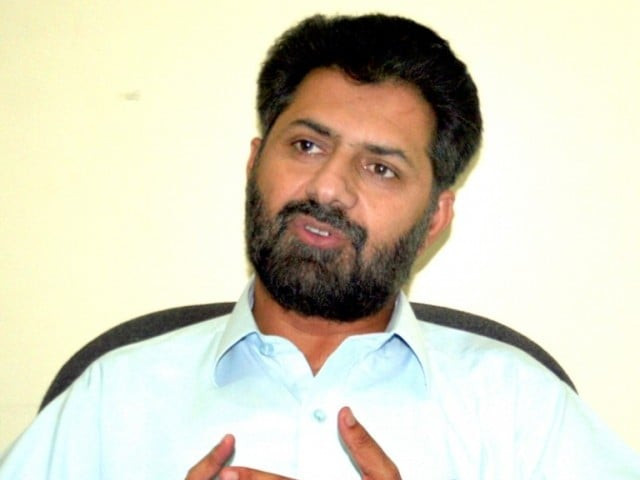Govt wakes up to the reality of rapid urbanisation
CoP on Sustainable Urbanisation holds its first-ever meeting

CoP Chairperson Inayatullah Khan, who is also a senior minister in K-P, said times had changed and older methods of decision making were now obsolete. PHOTO IQBAL HAIDER
With unplanned urbanisation being one of the most serious concerns in K-P, like the rest of South Asia, most major problems from urban flooding to urban violence have been traced back to the rural-urban migration, refugee influx and the mushrooming peri-urban spaces around the cities.
The situation is exacerbated by the government’s inability to get a grasp over the matter. The legislative abyss after the 18th Constitutional Amendment has left provinces with the responsibility to cope with the situation without proper capacity-building, said the participants of a meeting.
“Urban is a mindset, not a geographical entity” said renowned economist Kaiser Bengali as he contemplated over the dismal policies of the state when addressing the shortage of affordable housing for citizens. He said the land mafia was doing more than anyone in this sector.
In its presentation, the Khyber-Pakhtunkhwa Urban Policy Unit said not a single master plan from 1985 had been implemented in its entirety. This highlighted that the city’s urban management plan was incomplete since that time.
Punjab Urban Unit Director Ahmad Rafay Alam questioned the role of democracy if it failed at service delivery. CoP Chairperson Inayatullah Khan, who is also a senior minister in K-P, said times had changed and older methods of decision making were now obsolete. One of the major issues the government faced was the lack of data whenever it was required for evidence-based results.
Published in The Express Tribune, September 2nd, 2016.













COMMENTS
Comments are moderated and generally will be posted if they are on-topic and not abusive.
For more information, please see our Comments FAQ